It’s common decency not tojudge someonebased on their superficial traits. We don’t know their backstory or what they are going through, andmaking baseless assumptionsis unfair and possibly hurtful.
An elderly womanlearned this lesson the hard way during an encounter with a hotel employee dealing with grief. The lady hadunsavory opinionsabout the man’s tattoo and made sure to let him know.
The man, however, bit back and calmly put therude guestin her place. Scroll down for the entire text.
RELATED:

Image credits:Ahmet Kurt (not the actual photo)

Image credits:Alexandra Barbulica – Tattoo Artist (not the actual photo)
The man put the woman in her place, and he does not regret doing so
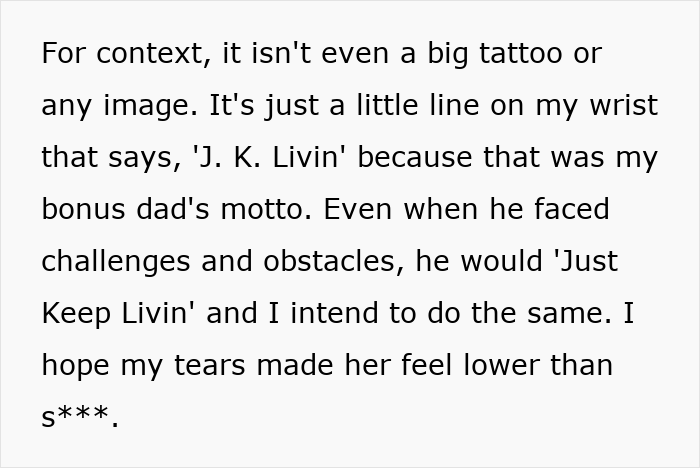
Image source:anxiousaxolotl4
Older people tend to be more prejudiced because of brain changes in late adulthood

Image credits:Nathan Anderson (not the actual photo)
While the woman’s behavior was inexcusable, it’s partly due to natural occurrence. In an article forthe BBC, author and social psychologistDr. William von Hippelexplained that it’s also because of brain changes in late adulthood.
As he explains, the brain’s frontal lobe gradually atrophies as we age. While it does not negatively affect intelligence, it degrades parts of the brain that hinder us from having inappropriate thoughts.
This is likely why older people find it more difficult to find words they want to say and why many voice thoughts they would usually suppress.
In his research, Dr. von Hippel also found that older people rely on stereotypes more and are likely to be socially insensitive “across a variety of domains.”
“Inhibitory ability isn’t stopping people’s true opinions from emerging so much as it’s suppressing their prior opinions,” Dr. von Hippel wrote, adding that older adults simply find it more difficult to suppress prejudices because of poor frontal lobe functioning.
Young people will likely encounter old, judgmental folks like the author did. When these situations arise, experts like marriage and psychotherapistLinda K. Laffey, MFT, advise going for an always-proven method: showing empathy.
As she explains inan articlefor her website, criticisms often stem from misunderstandings. Many older adults may lack knowledge about the current trends among young people, which could lead to baseless conclusions.
Laffey summed it up perfectly: “respond with empathy, not rigidity.”
“Letting that person know you understand their viewpoint can make a huge difference,” she wrote. “Don’t be afraid to show a little emotion or even apologize if the situation warrants it.”
The author did show the appropriate emotions that the situation called for. He was polite and professional enough in his response but also made sure he sent a strong message that what the woman said was inappropriate.
Many commenters showed sympathy for the author














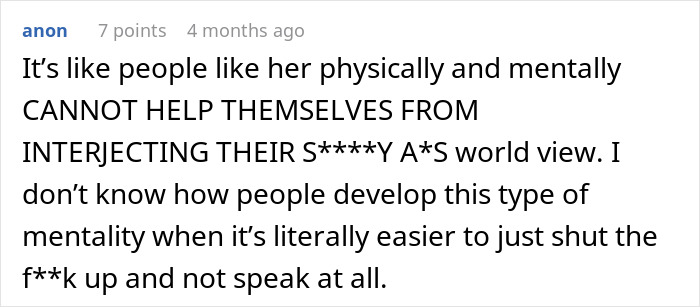


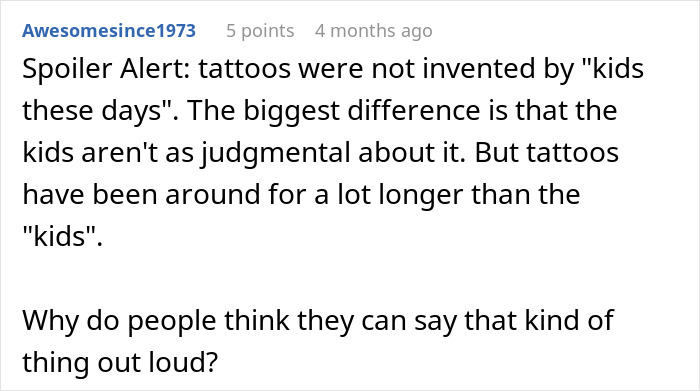


While others shared similar experiences

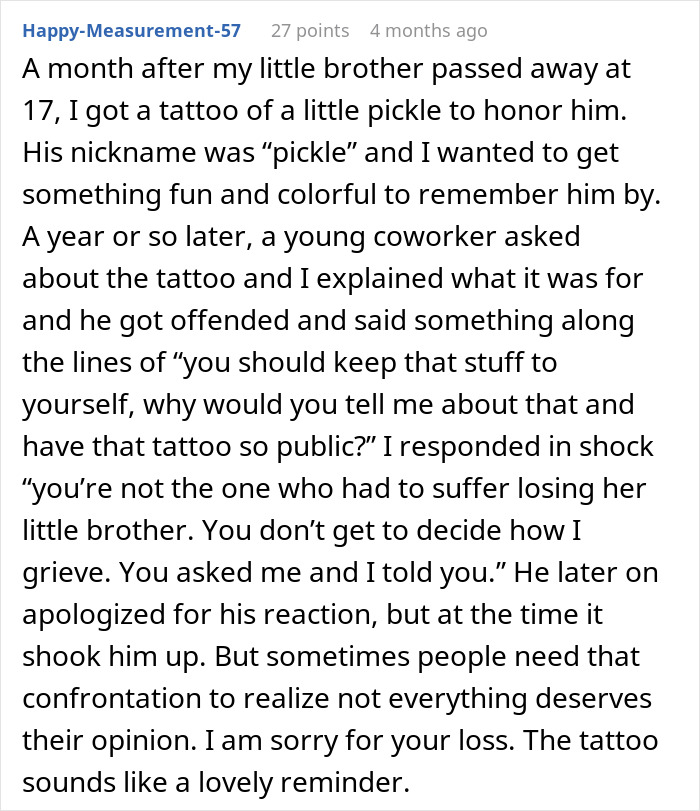

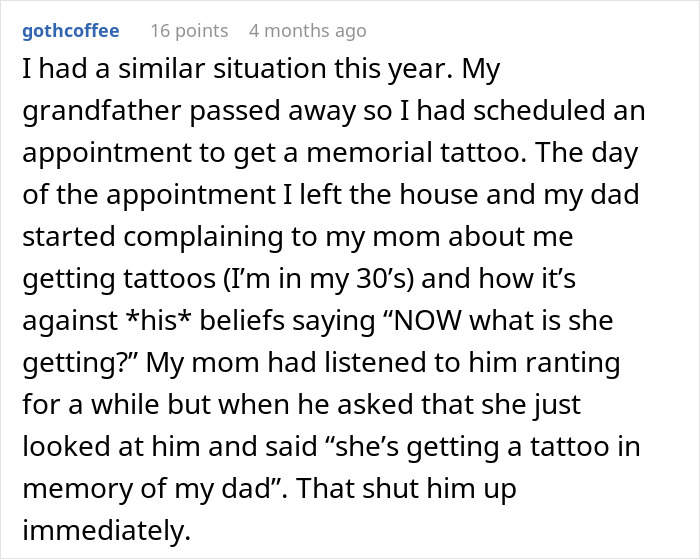

Thanks! Check out the results:You May LikeKaren Explodes Over Family Seating At Cafe, Leaves In A Furious OutburstMantas Kačerauskas50 Times Women Had The Most Savage Comebacks To Creepy Men’s DMsJustinas KeturkaHere Are 33 Of The Most Bizarre Things Folks Heard That “Real Men” Don’t DoRūta Zumbrickaitė
Mantas Kačerauskas
Justinas Keturka
Rūta Zumbrickaitė
Social Issues